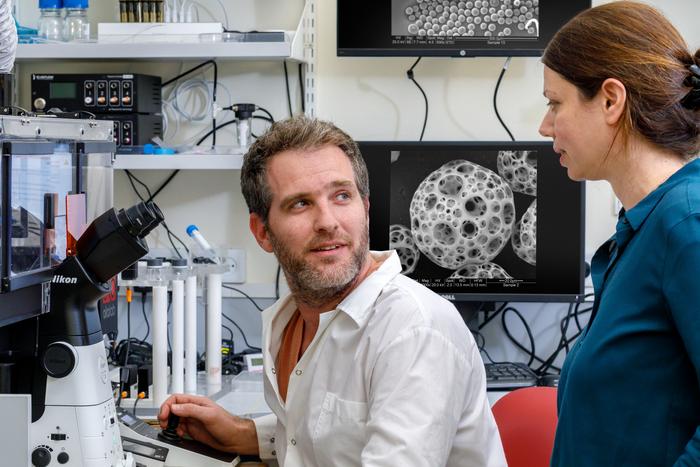Novel Method Combining Nano Informatics and AI Paves Way for Cancer Blood Tests
Posted on 31 May 2024
Current diagnostic methods for cancer often fall short in terms of precision and efficiency. Traditional techniques, such as imaging scans and tissue biopsies, are invasive, costly, and time-consuming. These methods can lead to treatment delays and potential misdiagnoses, as they may not fully capture the dynamic nature of cancer progression or provide detailed insights into the disease at the cellular level. As a result, patients might face delayed diagnoses, less than-optimal treatment outcomes, and increased psychological stress. These challenges underscore the critical need for more effective and non-invasive diagnostic tools. Now, a promising new method combines nano informatics and machine learning to predict cancer cell behavior with high accuracy. This innovative approach could potentially transform how cancer is diagnosed and treated by allowing for the quick identification of different cancer cell subpopulations based on their biological behaviors.
This novel method introduced in a recent study at the Hebrew University of Jerusalem combines nano informatics and machine learning to precisely predict cancer cell behaviors. This method facilitates the identification of cell subpopulations with unique characteristics, such as varying levels of drug sensitivity and potential for metastasis. This advancement could revolutionize cancer diagnostics and treatment, promoting personalized medicine by enabling fast and precise testing of cancer cell behaviors directly from patient biopsies. This could also lead to the development of new clinical tests for monitoring disease progression and treatment efficacy.

The study began by exposing cancer cells to differently sized particles, each marked with a distinct color. The researchers then measured the exact amount of particles ingested by each cell. Using machine learning algorithms, they analyzed these particle uptake patterns to predict crucial behaviors of the cells, such as their sensitivity to drugs and their potential to metastasize. This significant discovery could pave the way for breakthroughs in cancer diagnosis and treatment, enabling the identification of distinct cancer cell subpopulations through simple and expedient tests. This research sets the stage for developing new clinical tests that could markedly improve patient care.
"Our method is novel in its ability to distinguish between cancer cells that appear identical but behave differently at a biological level," said doctoral student Yoel Goldstein who led the study, which was published in Science Advances on May 29, 2024. "This precision is achieved through algorithmic analysis of how micro and nanoparticles are absorbed by cells. Being capable to collect and analyze new types of data brings up new possibilities for the field, with the potential to revolutionize clinical treatment and diagnosis through the development of new tools."
"This discovery allows us to potentially use cells from patient biopsies to quickly predict disease progression or chemotherapy resistance," stated Prof. Ofra Benny from the School of Pharmacy in the Faculty of Medicine. "It could also lead to the development of innovative blood tests that assess the efficacy of targeted immunotherapy treatments as example."
Related Links:
The Hebrew University of Jerusalem













